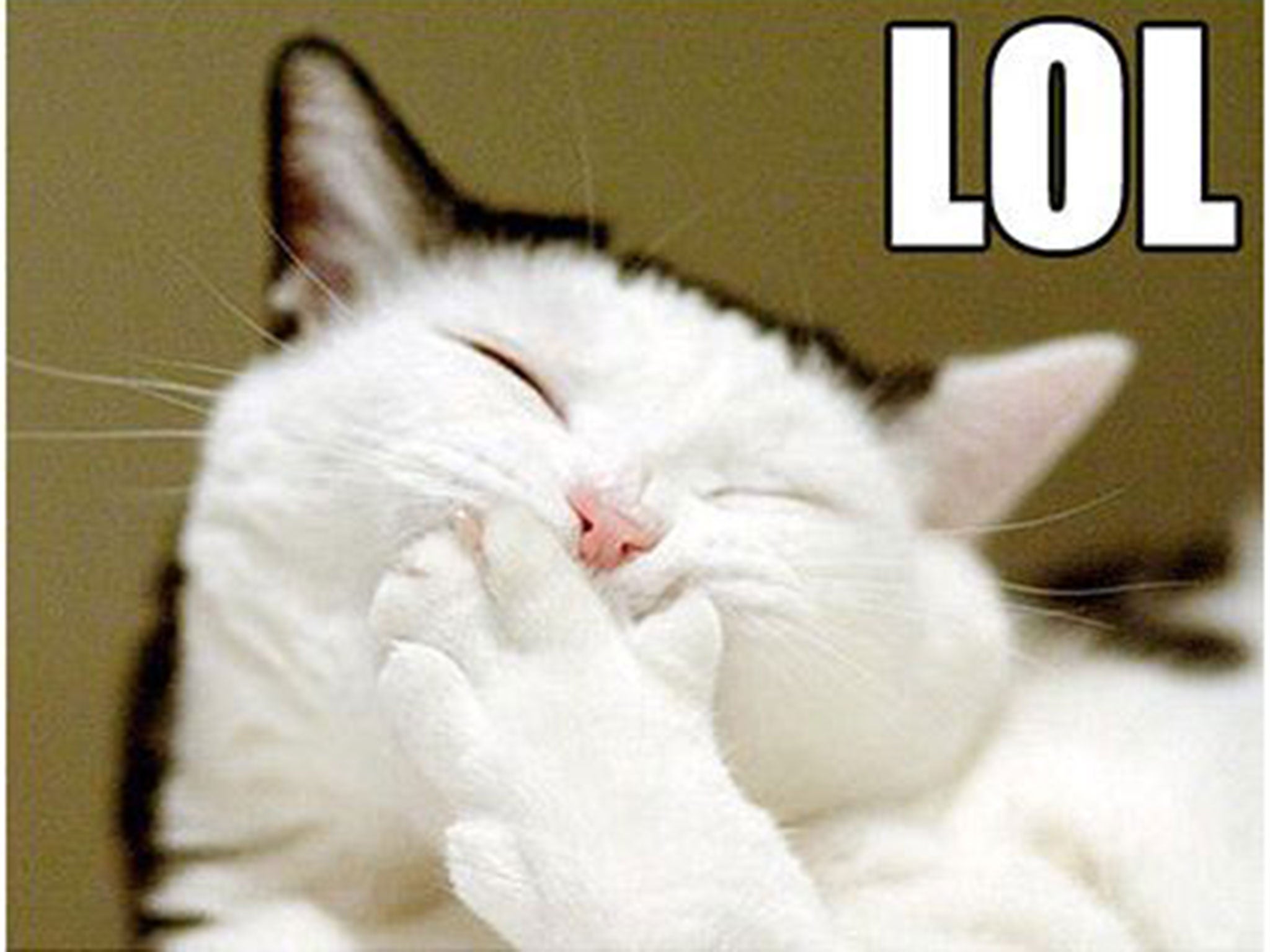LOL! The acronym that made the internet turns 25 - here's how we got here
The abbreviation for 'laugh out loud' was first cited in 1989 and is still going strong. Gretchen McCulloch explores how three letters took over the internet

Your support helps us to tell the story
From reproductive rights to climate change to Big Tech, The Independent is on the ground when the story is developing. Whether it's investigating the financials of Elon Musk's pro-Trump PAC or producing our latest documentary, 'The A Word', which shines a light on the American women fighting for reproductive rights, we know how important it is to parse out the facts from the messaging.
At such a critical moment in US history, we need reporters on the ground. Your donation allows us to keep sending journalists to speak to both sides of the story.
The Independent is trusted by Americans across the entire political spectrum. And unlike many other quality news outlets, we choose not to lock Americans out of our reporting and analysis with paywalls. We believe quality journalism should be available to everyone, paid for by those who can afford it.
Your support makes all the difference.This month marks the 25th anniversary of the first known usage of LOL for "laughing out loud" (the "lots of love" interpretation, incidentally, is quite a bit older).
The linguist Ben Zimmer notes that the earliest citation is from the May 1989 issue of a newsletter called Fidonet and is still available online.
Several terms on the original list, such as BTW, BRB, or even AFK, have stuck around, while others, including LMTO (laughing my tush off) and RAO (rolling all over), have persisted in slightly modified form. But some, LTNT (long time no type) and WLCM (welcome), have long ago faded into obscurity. In any case, the fact that these abbreviations appear as part of a larger list of general online shorthand suggests that they all predate the newsletter. And as for LOL in particular, a man named Wayne Pearson says that he remembers exactly how that one was coined.
Pearson claims that it was he who invented LOL in the early to mid Eighties on a Canadian bulletin board system, or BBS, called Viewline, where it quickly caught on and spread as Viewline users got free accounts on the larger chatroom service GEnie:
"LOL was first coined on a BBS called Viewline in Calgary, Alberta, Canada, in the early to mid-Eighties. A friend of mine who went by [the name] Sprout (and I believe he still does) had said something so funny in the teleconference room that I found myself truly laughing out loud, echoing off the walls of my kitchen. That's when 'LOL' was first used.
"We of course had ways of portraying amusement in chat rooms before that (>grin< >laugh< *smile*) and the gamut of smiley faces, but I felt that none of them really got across the fact that the other person just made you feel foolish by laughing out loud in a room all by yourself (or worse, with other family members in another room, thinking you quite odd!)."
Unfortunately, Pearson didn't keep any records of his purported first use of the term, so we can be sure of only 25 candles on the LOL birthday cake.
"If I had any idea that such a thing would spread, I would have saved the original conversation that led to the acronym's inception. Alas, I don't even recall what was so funny! While I can picture in my mind where I was when it happened, I can't narrow the time down any further."
Whatever you think of Pearson's account, it must have been a pretty good joke that resulted in his laughter "echoing off the walls" of his home. These days, I'd argue that LOL (commonly without caps) barely indicates an internal, silent chuckle, never mind an uproarious, audible guffaw.
In fact, as far back as 2001, the linguist David Crystal asked rhetorically: "How many people are actually 'laughing out loud' when they send LOL?" (If anyone can find older such expressions of scepticism, do let us know!) As the linguist John McWhorter now describes LOL: "What began as signifying laughter morphed into easing tension and creating a sense of equality." In other words, the abbreviation has evolved to relate empathy rather than hilarity.
So, what will happen to LOL in the next 25 years? Will we completely abandon it in favour of younger, hipper abbreviations, or is it part of our language for the long-term? (The LOLcat, after all, has already given way to Doge.) Will it have a midlife crisis, then obsolesce and start relying on its children to fix its tech problems? It should be so lucky. Remember ODM (on de move)? I thought so.
Join our commenting forum
Join thought-provoking conversations, follow other Independent readers and see their replies
0Comments